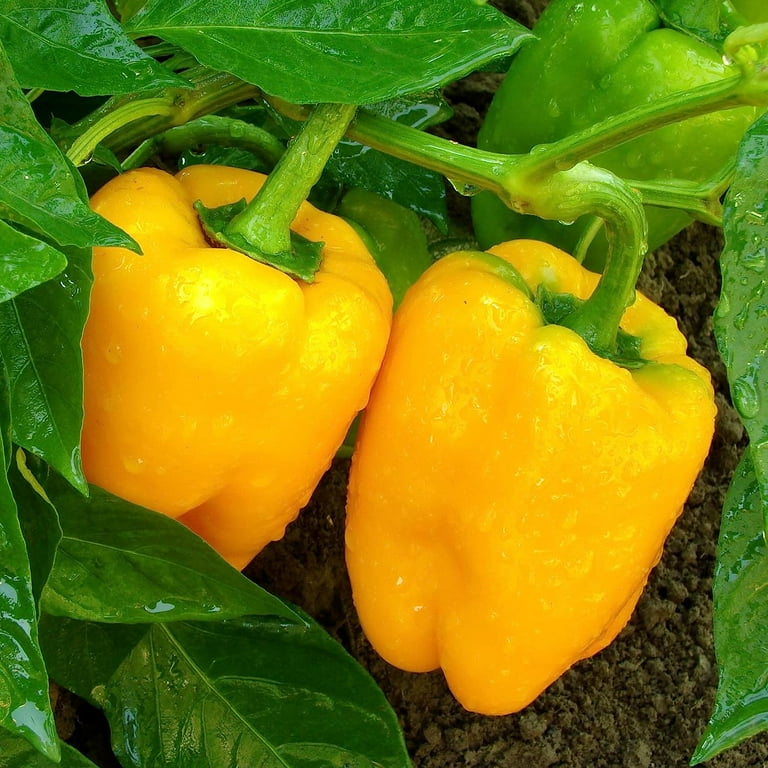Best Fertilizers for Peppers: Achieve Superior Results in Your Garden
Best Fertilizers for Peppers: Achieve Superior Results in Your Garden
Blog Article
Just How Plant Foods Play a Vital Role in Cultivating Healthy And Balanced and Plentiful Pepper Crops
Fertilizers serve as the backbone of effective pepper cultivation, offering a critical technique to nurturing the soil and promoting optimal plant growth. The elaborate dance in between essential nutrients and the pepper plants' physical procedures underscores the essential role that plant foods play in guaranteeing a plentiful harvest.
Value of Nutrient-Rich Fertilizers
The application of nutrient-rich fertilizers plays a pivotal role in boosting the productivity and top quality of pepper plants in modern agricultural practices. Pepper plants call for a balanced mix of necessary nutrients to grow and generate high yields of quality fruits. Phosphorus, nitrogen, and potassium are primary nutrients that are crucial for the growth and development of pepper plants. Nitrogen aids in leafy environment-friendly growth and general plant vitality, phosphorus sustains root development and blossom production, while potassium adds to illness resistance and fruit quality.
Inadequate degrees of these nutrients can result in stunted development, reduced yields, and vulnerability to conditions (best fertilizers for peppers). Nutrient-rich fertilizers provide a targeted solution to ensure that pepper plants get the necessary elements for optimal growth and performance. Furthermore, these fertilizers help enhance dirt fertility with time, producing a sustainable atmosphere for long-lasting pepper cultivation
Enhancing Plant Growth and Growth
To enhance plant development and development in pepper plants, critical application of nutrient-rich plant foods is vital. Fertilizers play a vital function in boosting the total wellness and performance of pepper plants by giving them with vital nutrients that may be doing not have in the dirt. Nitrogen, phosphorus, and potassium are primary macronutrients called for in big quantities by peppers for durable development. Nitrogen aids in leafy green growth and total plant vitality, phosphorus supports origin growth and blossom formation, while potassium adds to illness resistance and fruit top quality.
Iron, for circumstances, is necessary for chlorophyll manufacturing, which is necessary for photosynthesis and overall plant growth. Zinc plays an essential function in enzyme task and hormone synthesis, affecting plant development and growth at a mobile level.

Boosting Condition Resistance With Fertilizers
By purposefully including targeted fertilizers, farmers can reinforce the illness resistance of pepper plants, making certain optimal plant health and efficiency. Fertilizers having important nutrients like phosphorus, potassium, and nitrogen play an essential role in enhancing pepper plants' immune systems, making them a lot more resilient to different illness. Nitrogen, for example, help in the production of proteins that are important for plant protection systems. Phosphorus adds to root growth, allowing plants to better take in nutrients and water, thus enhancing their capability to fend off conditions. Potassium regulates processes that boost total plant health and wellness, making peppers a lot more robust versus microorganisms.

Maximizing Pepper Return Through Fertilization
Making use of a balanced fertilization method is essential to achieving maximum pepper return and ensuring optimum crop performance. By offering peppers with the appropriate nutrients at the correct time, farmers can substantially boost their return possibility. Potassium, phosphorus, and nitrogen are essential elements for pepper development, with nitrogen helping in leaf and stem growth, phosphorus supporting origin growth and flower development, and potassium advertising total plant wellness.
To make best use of pepper yield, it is essential to carry out soil tests to figure out existing nutrient degrees and determine any kind of shortages that require to be addressed. Based on these results, farmers can develop a customized fertilizing strategy that fulfills the particular requirements of their pepper plants. Furthermore, appropriate fertilizing methods such as split applications throughout the growing period can ensure constant nutrient accessibility for the plants.

Lasting Plant Food Practices for Peppers
In thinking about sustainable plant food methods for peppers, it is important to concentrate on long-lasting dirt health and wellness and ecological stewardship along with maximizing plant efficiency. Lasting plant food techniques intend to boost or preserve soil fertility while decreasing damaging ecological impacts. One crucial technique is using natural fertilizers such as garden compost, manure, or cover plants, which not just supply essential nutrients to the peppers but likewise contribute to dirt framework and microbial task. These natural alternatives aid develop raw material in the soil, boosting its ability to keep water and nutrients, therefore supporting lasting crop health and resilience.
In addition, accuracy agriculture strategies, such as dirt screening and targeted nutrient applications, visit here can assist maximize fertilizer use, ensuring that peppers get the nutrients they require without excess drainage right into rivers. This not just benefits the setting by minimizing contamination however also conserves costs for farmers by reducing waste. By taking on lasting fertilizer methods, pepper cultivators can secure the health and wellness of more helpful hints their plants, soil, and bordering communities for future generations.
Verdict
In final thought, plant foods are important for growing healthy and abundant pepper crops. best fertilizers for peppers. They supply necessary nutrients for plant development and development, increase condition resistance, and take full advantage of yield. By carrying out sustainable fertilizer practices, farmers can guarantee the long-term wellness of their pepper crops and contribute to a much more environmentally-friendly and effective agricultural system
The intricate dance in between necessary nutrients and the pepper plants' physical procedures underscores the crucial duty that plant foods play in ensuring a plentiful harvest.To enhance plant growth and advancement in pepper plants, critical application of nutrient-rich fertilizers is vital. Plant foods play a vital role in improving the total health and performance of pepper plants by offering them with crucial nutrients that may be lacking in the dirt.By strategically incorporating targeted plant foods, farmers can bolster the disease resistance of pepper crops, ensuring optimum plant health and performance. Plant foods including important nutrients like potassium, phosphorus, and nitrogen play a vital function in reinforcing pepper plants' immune systems, making them a lot more resistant to different diseases.
Report this page